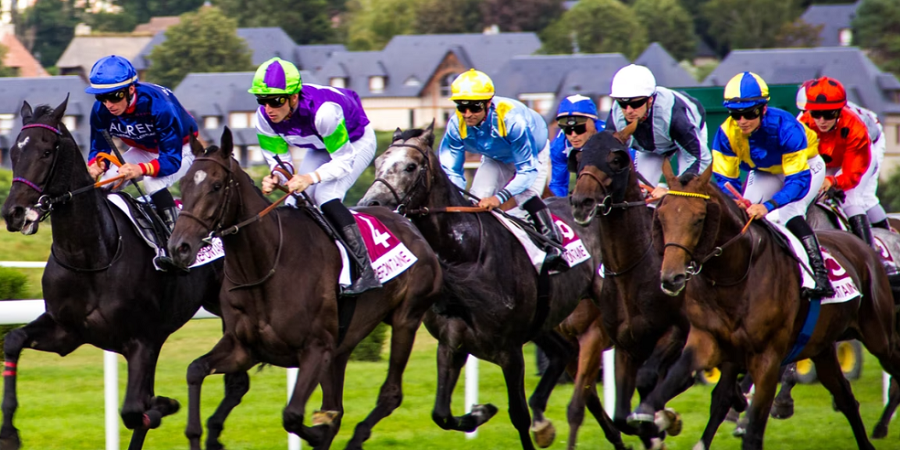If you’ve been placing bets on the horses or on other sports, you can’t fail to have heard of Coral. Even if you don’t bet on sports, you’ll have likely heard of this bookmaker, who are a household name not just in the betting world, but in general.
The chain has been running since 1926 and has seen some big events in its time, including the merger with Ladbrokes, which was initially blocked by the Government in the 1990s following recommendations by the Monopolies and Mergers Commission and a takeover by online rivals GVC. This article looks at Coral’s history and why horse-racing fans and other punters are so fond of it.
The venture of Joe “Kagalitsky”
The founder of Coral was a Polish man named Joe Kagalitsky, who emigrated to England in the early 20th century. When he arrived, he changed his name to Joe Coral.
Joe found he had a talent for mathematics and dropped out of school when he was 14 years to nurture this talent further and work as a clerk at a lamp manufacturer. It was during this time that he met some bookmakers, started collecting bets on the side for them and, eventually, decided to go into bookmaking himself.
Joe had started to collect bets at a local billiard hall and, in 1926, he decided to set up his own betting facilities at Haringey and White City greyhounds. Although the business didn’t have the official name of “Coral” just yet, this, effectively, was when the business was born.
Jumping all the way forward to the 1960s, the Betting and Gaming Act was introduced and Joe was one of the quickest to react. In 1961, he opened his first licensed betting shop and, in 1963, set up as a limited company. Gradually, the company name became more and more familiar on the streets of London as more and more shops started to open.
Expansion
In the 1970s, Coral stayed on as the president of the company, which had been bought out by Bass. The business continued to expand and, by the 1970s, had around 650 betting shops.
Today, Coral has more than 1 800 betting shops in the UK and has seen mergers with Ladbrokes and an acquisition by GVC Holdings. Unfortunately, the founder himself passed away in 1996, but he would be proud to see the progress of his company in the modern era. Again, Coral was quick on the ball and, as the internet started to materialise, the company became swiftly involved in running an online operation.
If you want to learn more about the company and Coral horse racing betting, try visiting horseracingbetting.co.uk. There you can read a review of the company and of some of its services.
What makes Coral so popular?
Coral isn’t one of the most popular bookmakers in the UK for no good reason. Punters can bet on a variety of popular sports, such as football, horse racing, boxing or darts, and on less popular sports in the betting market, including speedway and Gaelic football. It’s also possible to bet on leagues outside of the UK, even on leagues in faraway places such as Vietnam or Guatemala.
Then there’s the online experience. Naturally, the company offers a betting app, but there’s also live streaming and some excellent in-play betting features, allowing players to place bets between the start and finish off sports events. The odds on the in-play feature are terrific, too.
Players can make multiple bets and the maximum payout is £1 million per day. William Hill’s maximum is a little higher than this at £2 million, but horse racing punters will certainly find £1 million reasonable. On greyhounds it’s a little less at around £500 000, which is still a nice little earner if your bet comes in.
Coral and horse racing history
Coral is one of the most companies whose history is most deeply ingrained in horse racing. The sport is at the core of the company’s brand. Coral has also played a part in the success of greyhound racing, having bought up pitches at several greyhound racing tracks and saved them.
However, the company has made new history in the racing world. In October, GVC announced that they’ll be ending operations at racecourses. The fact that courses aren’t allowed spectators or are only allowed a limited crowd has played a significant part in the decision, but the announcement is one that GVC would have made anyway at some point in the future.
That’s 106 pitches they’re releasing and it’s a sign that betting on racing is changing. GVC had stated that they were still committed to horse racing and have a significant race sponsorship portfolio under Ladbrokes and Coral.
Coral has been around for a long time and it’s a rare better who doesn’t enjoy placing a bet with the company. The business’s solid roots in horse racing, not to mention the variety and online experience it offers its customers, all help it to remain hugely popular.










